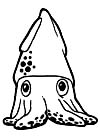(published March 1, 2001)

The headman demanded, in mission English, a full inquiry. It was a grievous breach of contract, and I promised "something would be done." Perhaps not justice — I could not in all honesty promise him that — but at the very least the trappings of justice.
The porters dropped their burdens and withdrew to their tents, pending the outcome.
Pennington suggested Dr. Landis head the inquest. He had lately arrived from the Smithsonian, with the scientific method full upon him. While I did not doubt his medical abilities, I questioned his powers of deduction. I proposed instead Sir Arthur Conan Doyle. He had not only served as a physician in the recent South African War, but was a writer of detective fiction of great distinction. Pennington nodded his assent, and I went in search of him.
I found Sir Arthur in his tent, dreaming — he said — of Moriarty.
"Because of the plashing of the falls," he said.
Close by his tent, a waterfall pittered indifferently into the muddy Potha. But it was a pygmy to the thundering Reichenbach Falls, which had nearly done for Holmes and Moriarty both.
I informed Sir Arthur of our wishes in the matter of the porter and handed him the black box. He opened it and unpacked the trappings from the tissue of lies that wrapped them. They suited his eminence, though he found them somewhat constricting at the neck.
He followed me reluctantly to the river, protesting as he filled his calabash that it was unwise to confound an author with his creation.
"Do you think the Almighty would appreciate being mistaken for a man?" he asked.
I did not see the joke if joke it was.
The porter was lying where I had left him. Sir Arthur leaned over the blood-soaked reeds and pronounced him dead.
I looked at him questioningly, waiting for a flash of insight, a show of spectacular ratiocination — in short, a piece of deduction.
"More I cannot say" was all he said.
His pipe began to splutter. He pressed the dottle with his thumb and silenced it. He looked at me as if he would just as soon have me under it as well for troubling him.
"He appears to have been shot through the chest," I offered, tentatively, so as not to offend.
"Brilliant!" bristled Sir Arthur in the vicinity of his handsome mustache.
"The question is, by whom?"
The great man shrugged. "I hatch plots," he said cryptically.
"Plots?"
Pennington stopped plaiting his long beard to eye the fellow suspiciously.
"I wind up characters and set them going. What they do then is their own business."
Sir Arthur kicked a pebble into the Potha for emphasis.
"But surely —" I began.
"I warned you," he said, wagging his pipe aggressively. "There are regions of Holmes' mind entirely unknown to me. He has a genius for these matters — I do not."
He turned and left us to solve the mystery for ourselves. I watched him recede into the middle distance like a billowing locomotive. He continued on, into invisibility, leaving nothing but smoke to mark his place.
I confess I was disappointed. It seemed inconceivable that the mind of a fictional character should conceal anything from its creator. But I am no artist.
I looked once more at the dead porter, taking comfort in his extreme materiality. The regions of his mind, which had been unknown to me just a short while ago, held no further mystery. He still clung to an umbrella, for which all porters have a special attachment. Whether they consider them totemic or decorative I was never able to determine.
We left the body to the headman and what dread offices he might perform for its soul's rest. We went — Pennington to his taxidermy and I to ponder the border between art and life. Was it a vague frontier overseen by drowsing guards? Or a wall — impervious and unbreachable?
At nightfall, fires lit up the darkness and showed the tents in shadowy outline. The porters squatted round them, their faces flickering with ruddy light. Some blew whistles, some beat monotonously on tom-toms while others chanted a phrase which might or might not be meaningless.
From Sir Arthur's tent came the sorrowing of a violin.
The next morning I received a message from Sir Arthur, recommending that a "seance be laid on to find the culprit." I thought it an outlandish idea. Years later, after he had lost his son in the Great War, I read that Sir Arthur was lecturing in Africa on spiritualism.
I wasn't surprised.
I knew that writers were a weak and ineffectual species.
The murderer of the porter was never discovered — nor the meaning of the porters' song, nor the reason Kassitura played his harp, nor, for that matter, the reason for night and life and why both must combine inevitably in death.
With so much uncertainty, so much left unexplained — I felt at sea, in a leaky boat, inadequately provisioned. I wanted to know, to claim some small particle of knowledge for my own.
When Sir Arthur died earlier this year, I did not go to the funeral. Instead, I sent my condolences to 221B Baker Street. That I received not a word of acknowledgment came as no surprise: neither Holmes nor Dr. Watson had ever laid eyes on me. Those two gentlemen are much too discreet to enter into a correspondence with any Tom, Dick, or Harry.
I understand their point of view and entirely agree with it.
from "A History of the Imagination"
Share on Facebook
![]() Tweet about this Piece
Tweet about this Piece
Fiction Archives